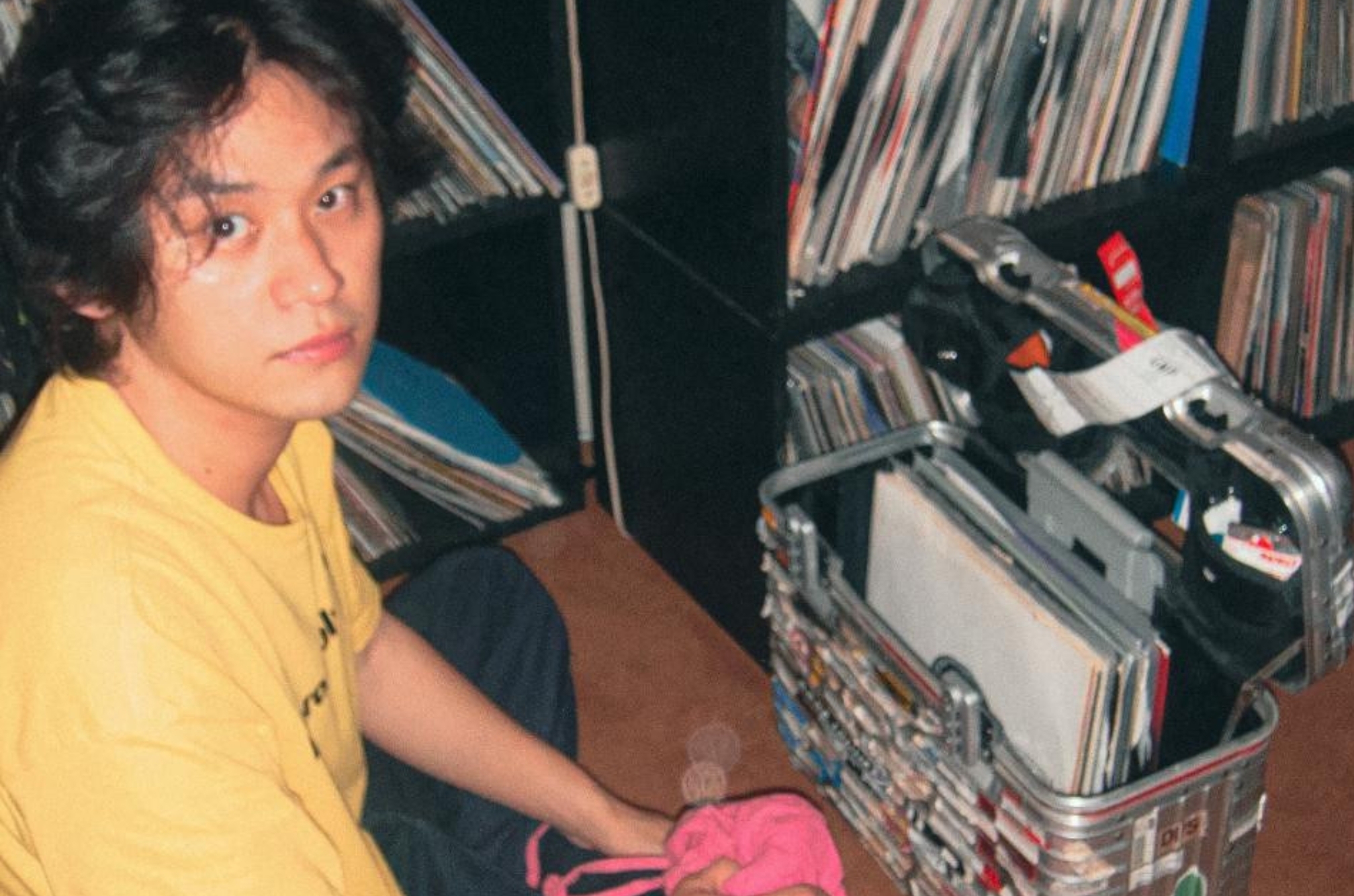 Interviews
Interviews
From within and without: the sound of ffan’s quiet revolution
The artist speaks on 16 years shaping Seoul’s dance scene, broken beauty, and why he’s still staring at the same Matisse
Holding a two-generation music legacy in Seoul, ffan is the city’s new school of thought and music. This is not a hollow or self-proclaimed statement, but a sentiment echoed by musicians who have witnessed both Seoul’s evolution and ffan’s journey over the years.
A true pillar of Asian underground culture, Chida himself names ffan as one of the driving forces behind Seoul’s dance scene today.
If you’ve met ffan, you’ll know he excels in forming meaningful connections–blurring the lines between the professional and the personal, becoming one with those around him. This personal trait has made NYAPI, the club he runs, a place of welcoming and family-like spirit. This is ffan’s echo.
His mind is broad and wide, complex and abstract, spontaneous and messy–yet within that spontaneity lies the calculated move of a meticulous and discerning artist who, perhaps unknowingly, has not only mentored others by “nurturing young local talents” (as Chida put it), but has also, in turn, influenced his own mentor, Capablanca. ffan open doors in a music scene where they are usually kept shut.
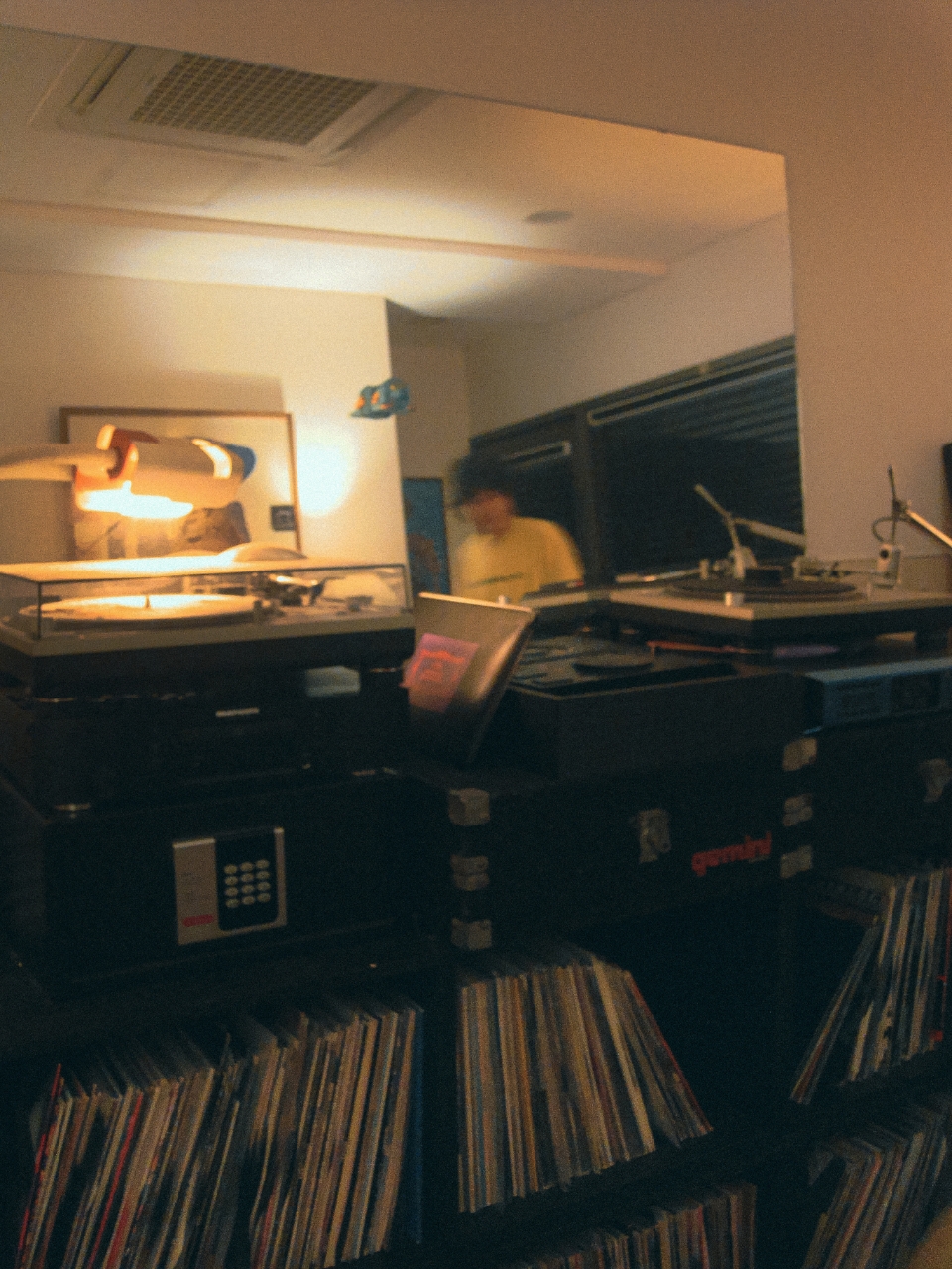
A name steadily making waves beyond Asia, ffan thrives with such singularity that finding a true doppelgänger would be a futile pursuit. From Berlin to Paris, from India to Mexico, there’s no one quite like him.
“His contagious enthusiasm, his way of looking at music and vital sense of humour”, as Capablanca describes, resonate worldwide.
In the silver linings of the dancefloors and lives he touches, ffan enchants wherever he goes. But every charm carries a dormant shadow, a side he occasionally allows to unfurl. Those sideline stories add the spice to a 16-year career cemented by hard work, raw determination, and spontaneity.
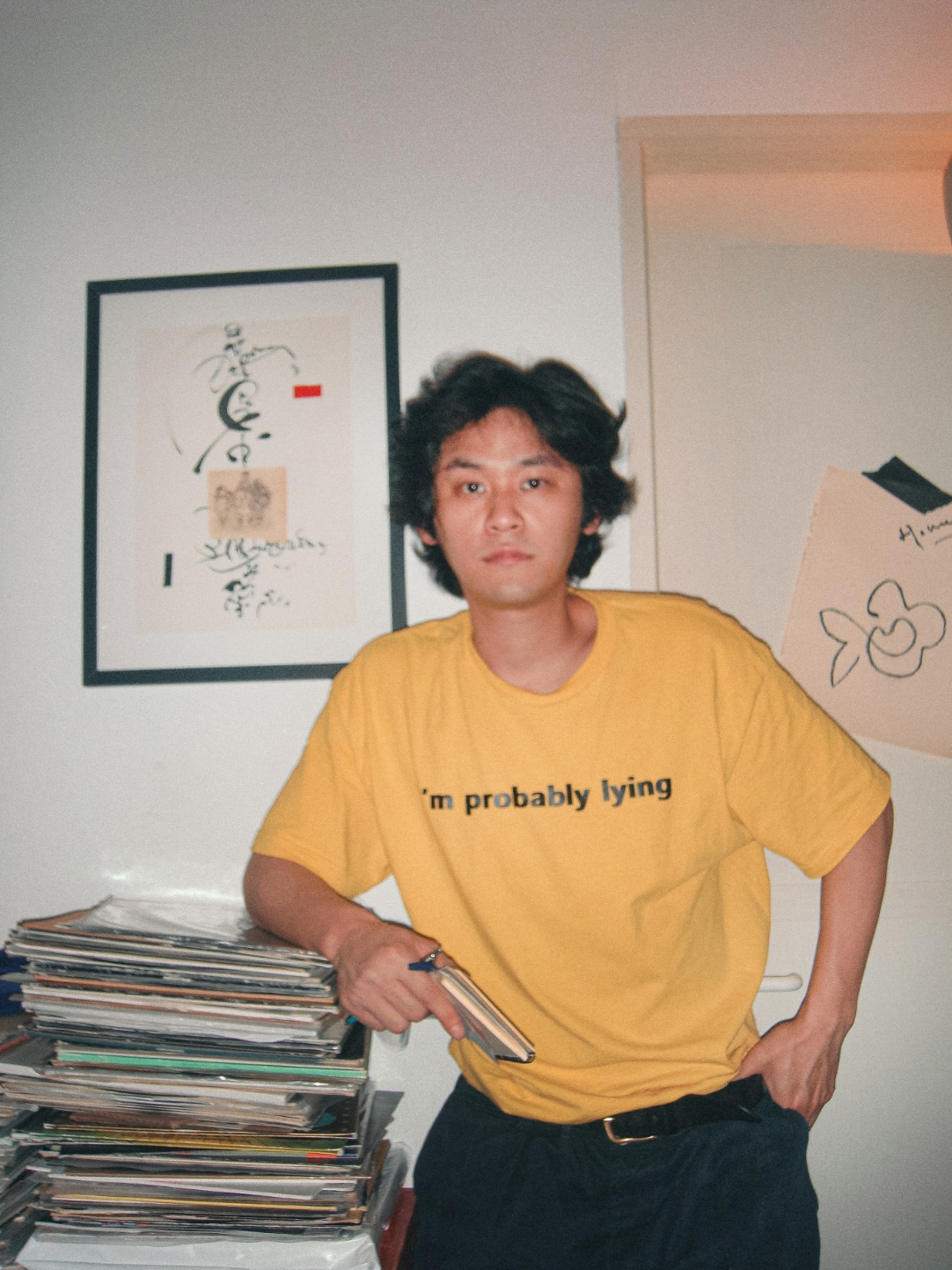
When you listen back to your earliest sets, what parts feel distant now and what still feels like you?
Even when I listen back to a mix I recorded 16 years ago, it’s surprising how similar it is to what I do now. These days, I’ve learned to adapt more to different environments, but at the core, it’s still the same—I’m still blending together random bits of this and that. Aside from how strangely old-fashioned it sounds, everything else is still the same.
Do you think your sound evolved more because you changed, or because the world around you did?
It’s probably both, right? The world has changed a lot—but compared to how much everything else has shifted over the past 16 years, our music scene hasn’t changed all that drastically. Sixteen years is a long time, so of course I’ve grown, and the environments and experiences I’ve had are far more diverse now. But still, bit by bit, things change, and some days I feel like I’m playing just like I did back then when I first started.
What does Seoul sound like to you now, and how is that different from when you first began?
The sound has changed a lot. Before, the underground scene wasn’t as big as it is now.
There were only one or two underground clubs with a capacity of under 100 people, and even those weren’t very successful. These days, the styles are clearer, and there are many cool clubs with strong followings. I think the scene has grown a lot in a short time.
There are also a lot of talented young DJs now.
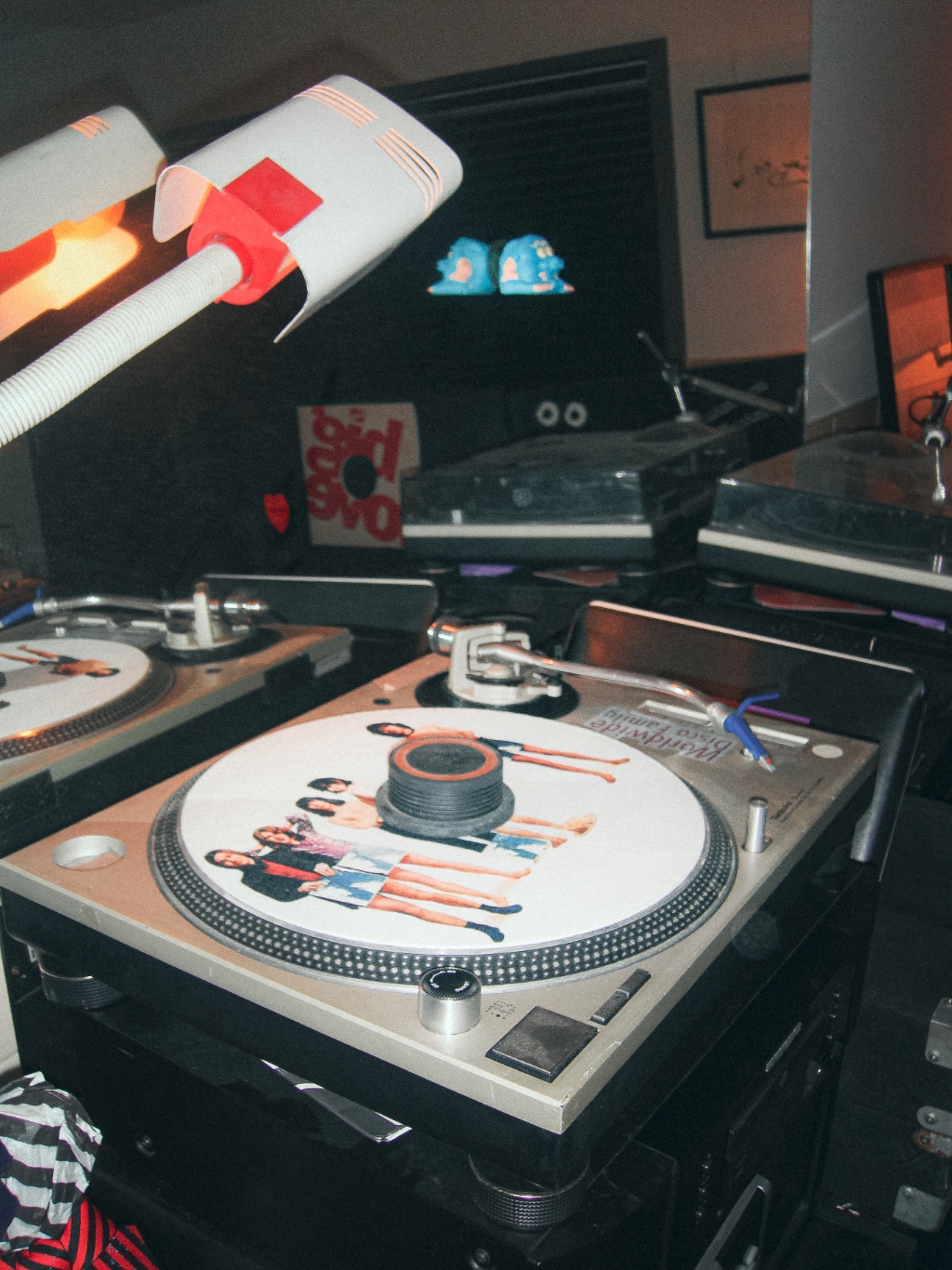
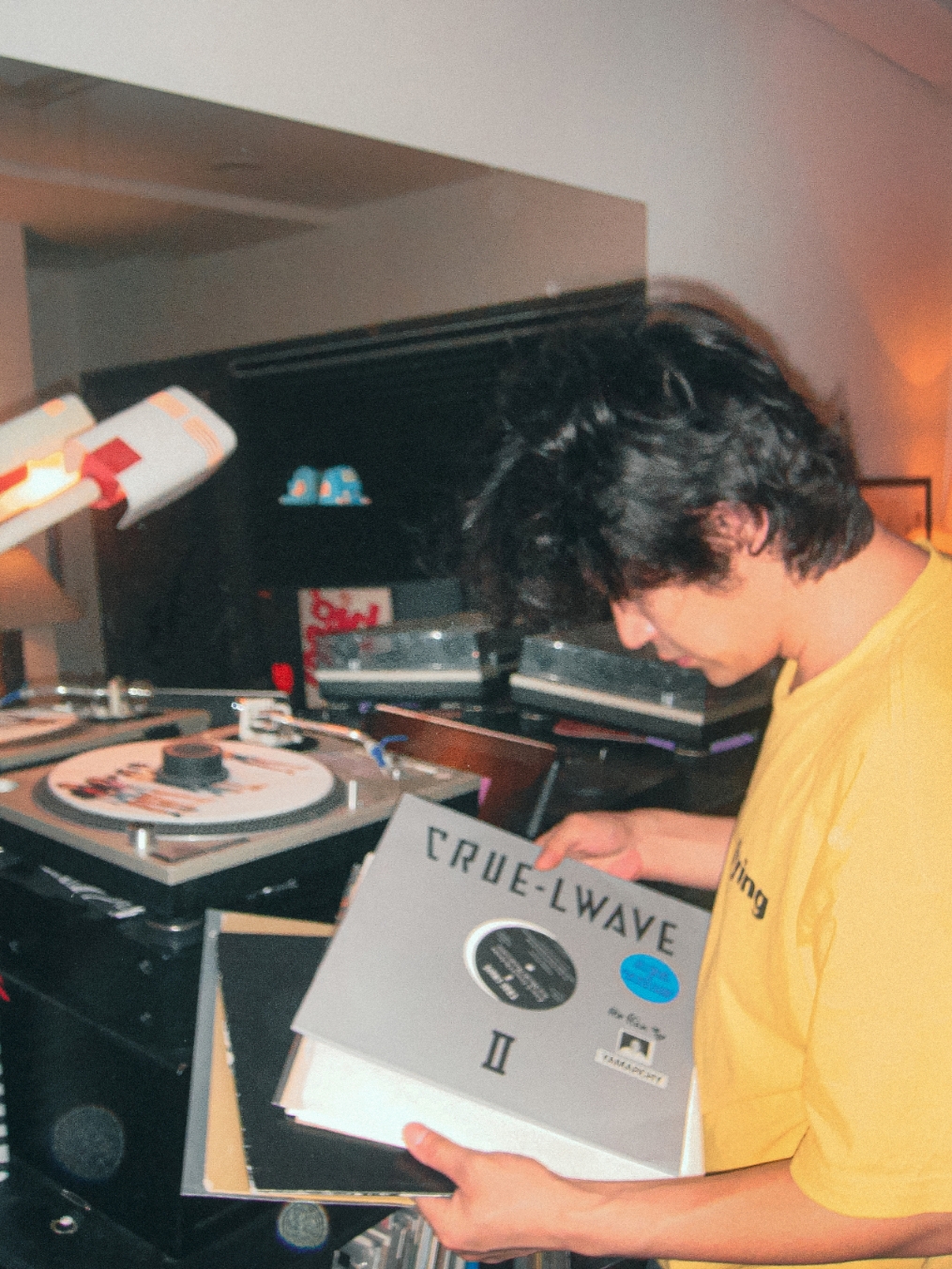
You’ve played alongside some big names, but is there someone lesser-known who’s quietly shaped the way you listen or play?
Well, regardless of fame, there are a few DJs who have had a huge impact on me: Chida, DJ Kent, Capablanca, Tom of England, Eric Duncan, An-i, Tiago, DJ Harvey, and my friend Yamarchy.
Was there a moment that you felt truly defined your career or changed its direction?
It was around 2015, during a trip to Japan. Before Vent opened, there was a club called ARC, and Butch—a local DJ I really admired—was playing on the sub stage. He dropped record after record that I absolutely loved. After his set, I couldn’t help but bombard him with questions—about record stores, local DJ legends, everything. When I got back to Seoul, I kept messaging him almost every day. Eventually, I even invited him to play here. Looking back, I think that’s when my real journey as a DJ began
How did it feel to play at Panorama Bar for the first time? Did it live up to your expectations, or shift something in you instead?
It honestly felt like a dream.
The first time I went to Panorama Bar was almost ten years ago, and every time I visited Berlin since, I always ended up there, so playing there had always been at the back of my mind. What made it even more surreal was that it was Sound Metaphors’ 10th anniversary, and my time slot was unbelievably good—almost too good to be true. The line-up that day was filled with close friends, which made it all the more fun to play.
The booth was perfect, and everything just flowed—I had so many tracks I wanted to play, but at the same time, I didn’t want to cut off the ones already playing. As a DJ, haven’t you ever dreamed of the moment when the blind opens at Panorama while you’re playing? Well, it actually happened to me—more than once, even! Haha. And in that dreamlike moment, my wife and friends from all over the world were right there with me. Being part of the climax of a party that started early that day…it was a real honour.
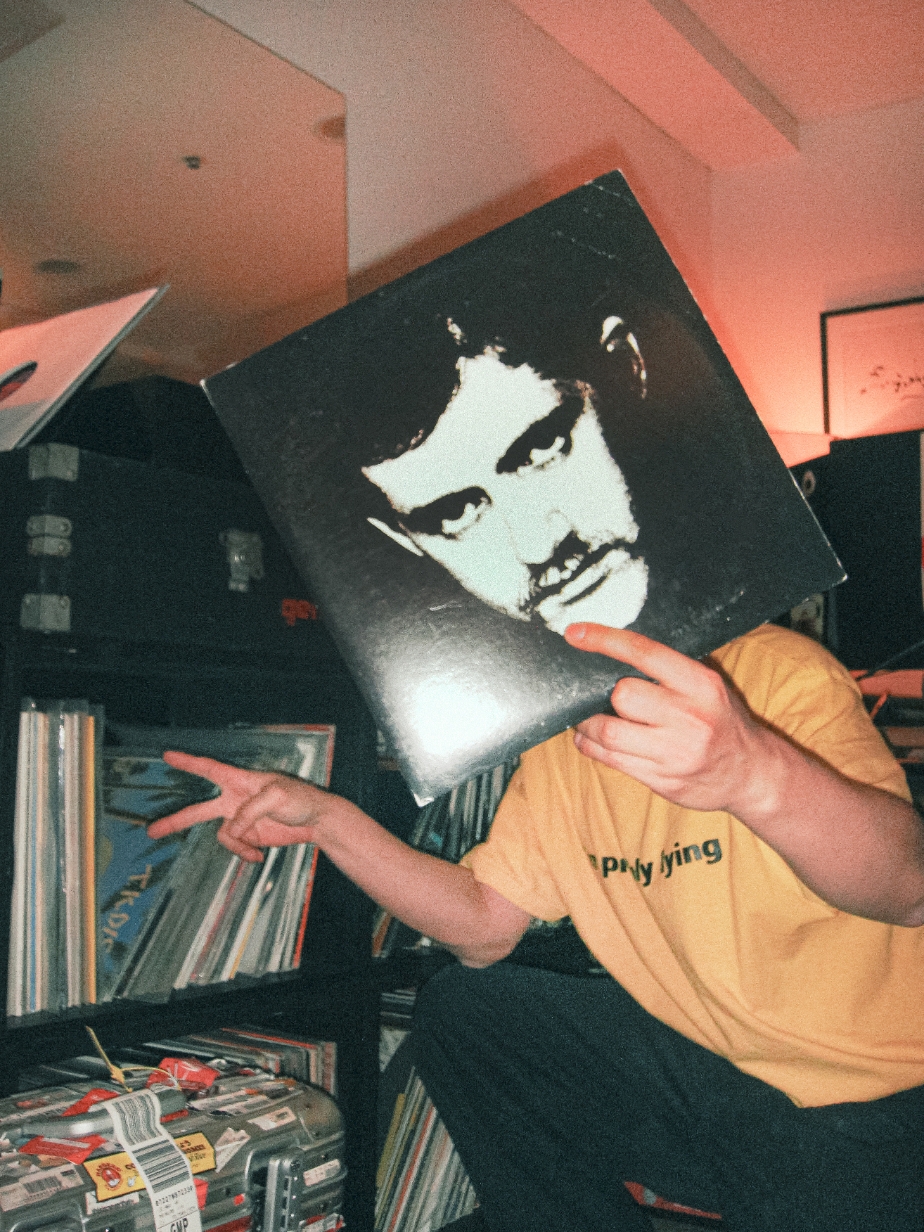
Was there a party that stood out as especially memorable for you? What made it so?
Around 2016-2018, I followed Chida to Cocktail D’amore in Berlin. I had always loved the mixes from Cocktail D’amore, and finally, I got to experience the party in person. I can’t describe everything here, but at such a young age, my first trip to Berlin and to Cocktail d’Amore was such a huge shock.
To borrow a quote from my favourite writer, Choi Wook-kyung:
“Thousands of sky gates
Swing wide open
The sun
Radiates in pure white,
And the pouring light
Makes me blind.”
(From “Alice’s Cat,” Like Strange Faces, 1989)
How was your recent European tour? Were there any moments that stood out or made the experience especially meaningful for you?
Above all, I really loved spending time with my friends. A few days at Hugo’s house in Lisbon was truly great. The city was beautiful, the food was amazing, and Lux’s performance was fun, but what I enjoyed the most was spending time with a life mentor who resonated with me.
Time spent with friends in Berlin was also very enjoyable, and above all, Douglas’ kimchi stew was pure happiness for me. Time spent with Hening, Lewie, Cortney, Nemo, Castro…there are too many friends to name, but the time spent with them, and my precious few days with Grisha in Paris, walking endlessly and chatting on the last morning. Strangely, it’s hard to meet friends like these in Korea. My tours have always been about finding someone similar to me, and this tour was more successful than ever.
What you just said is fascinating, especially in the context of Korea being such a homogeneous society. Do you think this kind of ‘identity borrowing’ happens widely across the music scene, or is it something more specific to Seoul’s culture? Also, you strike me as a natural rebel. Growing up here, did you feel free to express yourself, or did you have to hold parts of yourself back?
It’s not easy. Korea often feels like a country made of half air, half gaslighting. Most people will tell you that anything unfamiliar is wrong. It reminds me of those stubborn, set-in-their-ways middle-aged guys in the countryside of the UK or Germany. Instead of offering congratulations, people reach for criticism. Instead of giving respect, they pull out the whip. Even if you get nine things right, they’ll focus on the one thing you missed. Here, it’s somehow considered cool to call that out.
I always say, there’s no such thing as a 100-point person—we’re all just charming 60-pointers. But still, so many people expect everyone to be a perfect 100, even though they themselves aren’t even close to 60. It’s ironic—whether in fashion or music or sports, trends in Korea come fast and disappear even faster. All the time, energy, and effort poured into something gets erased in the name of what’s “in”. And when that happens over and over, how can an artist build their own identity? It only leads to the opposite—people chasing instead of creating.
In my home, we’ve had a Matisse print and a Basili chair for 30 years. A few years ago, those became trendy, and now no one even notices them. Isn’t that funny? The ones who talk the most about “taste” often don’t have any of their own. They’re sprinting short-distance marathons with nothing lasting to show for it.
Sure, there are good clubs and good artists here. But even now, most of them keep repeating the same things. I want to do something different. I want to create my own style, and maybe all the flaws I once saw as disadvantages can be the cherries on top of something that’s truly mine. To me, a lot of people still seem like they’re trying to get rose scent out of tulips—or watching an eagle trying to run like a hyena.
That kind of stuff…it’s just so lame. In the end, no one is really to blame. Korea grew too fast. We’re caught in a cycle of generational dissonance, directionless nostalgia, and meaningless gaslighting—chasing revolutions only to burn out.
I’m not a rebel. I’m just someone who’s still sitting on a 30-year-old Basili chair, quietly staring at a dusty Matisse on the wall.
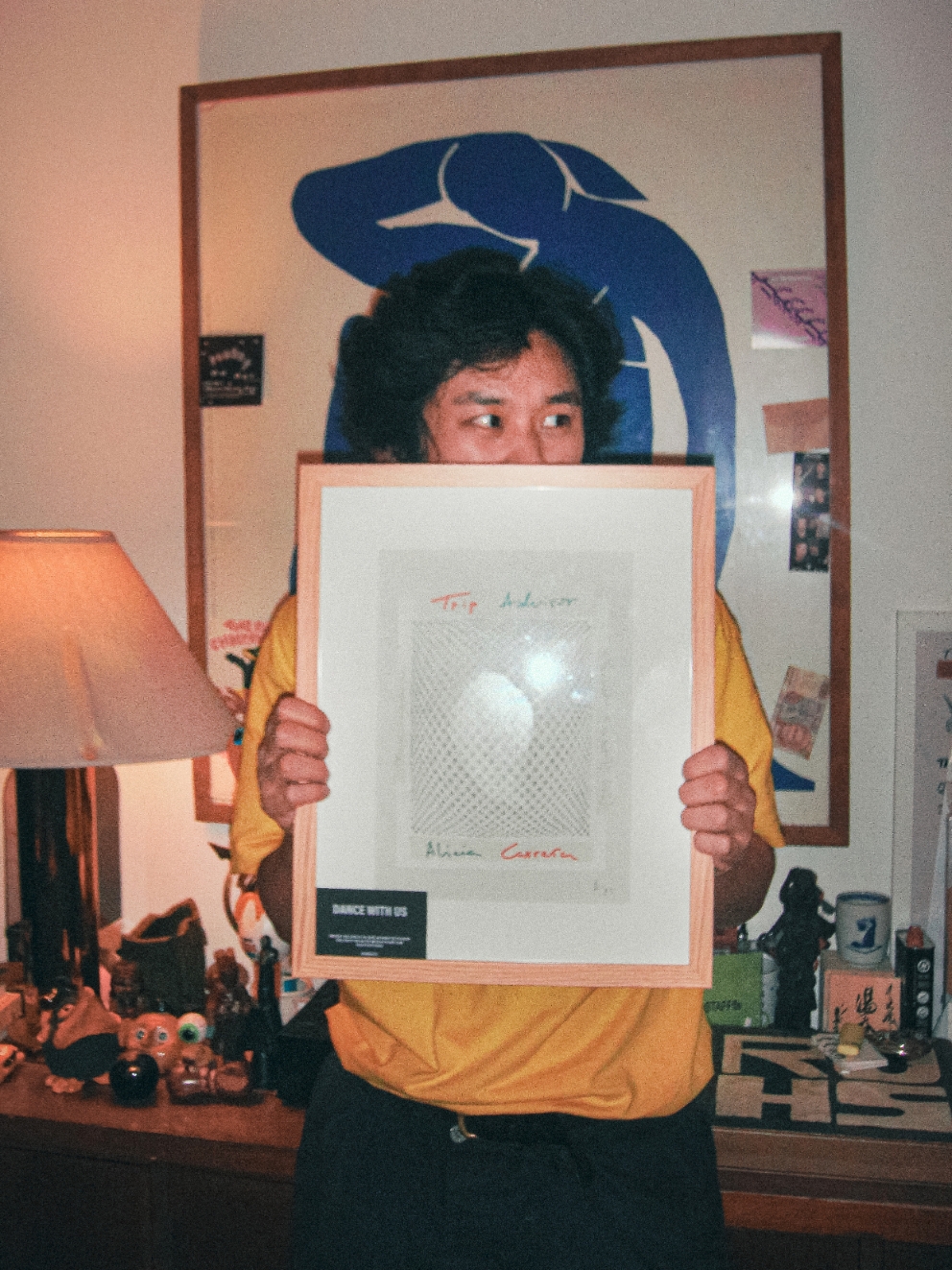
What’s something about your journey that people usually don’t get right?
We know each other as good friends without any misunderstandings.
You’ve built scenes, clubs, collectives, and parties. Was there ever a moment you felt like stepping away from it all? What pulled you back in?
I tend to stir things up—I attract problems and incidents, so stress has become something like a close companion, my best friend. But among all of it, the hardest part is always dealing with people. DJing is such a solitary craft, and when you’ve been working alone for a long time, it naturally pushes you toward individualistic thinking. I’m probably the most extreme example of that.
I’ve taken on way more than I could realistically manage. Looking back, there were so many times I dove into things with nothing but confidence—too young, too inexperienced, and unaware of what I was really getting into.
When do you have fun these days?
These days, I enjoy cooking. It feels like my mind is strangely at ease, and sharing my food with my family is so enjoyable. The taste? Incredibly terrible.
What’s your most confident dish to cook? (It’s okay if you’re not great at it)
Bibim Guksu.
Is there a track you’d never play again, but still love?
The Ones 'Flawless' (Club Mix)
What would a “quiet” chapter of ffan look like?
I like driving alone through Seoul’s empty streets after Somatics, late at night. When I’m not working, I spend most of my time with Mijae.
Is Somatics something you’d recommend to other musicians, or do you see it as more of a personal part of your own process?
You absolutely should. It has a stronger effect than any powder.
Is there a sound or scene you haven’t been involved with yet, but feel drawn to?
I’m interested in the free jazz scene I saw once in one of my favourite places in London, Cafe OTO. It’s amazing! If someone is going to London, make sure to visit.
What would you want someone to say after hearing your set for the first time?
IT'S LOVE!
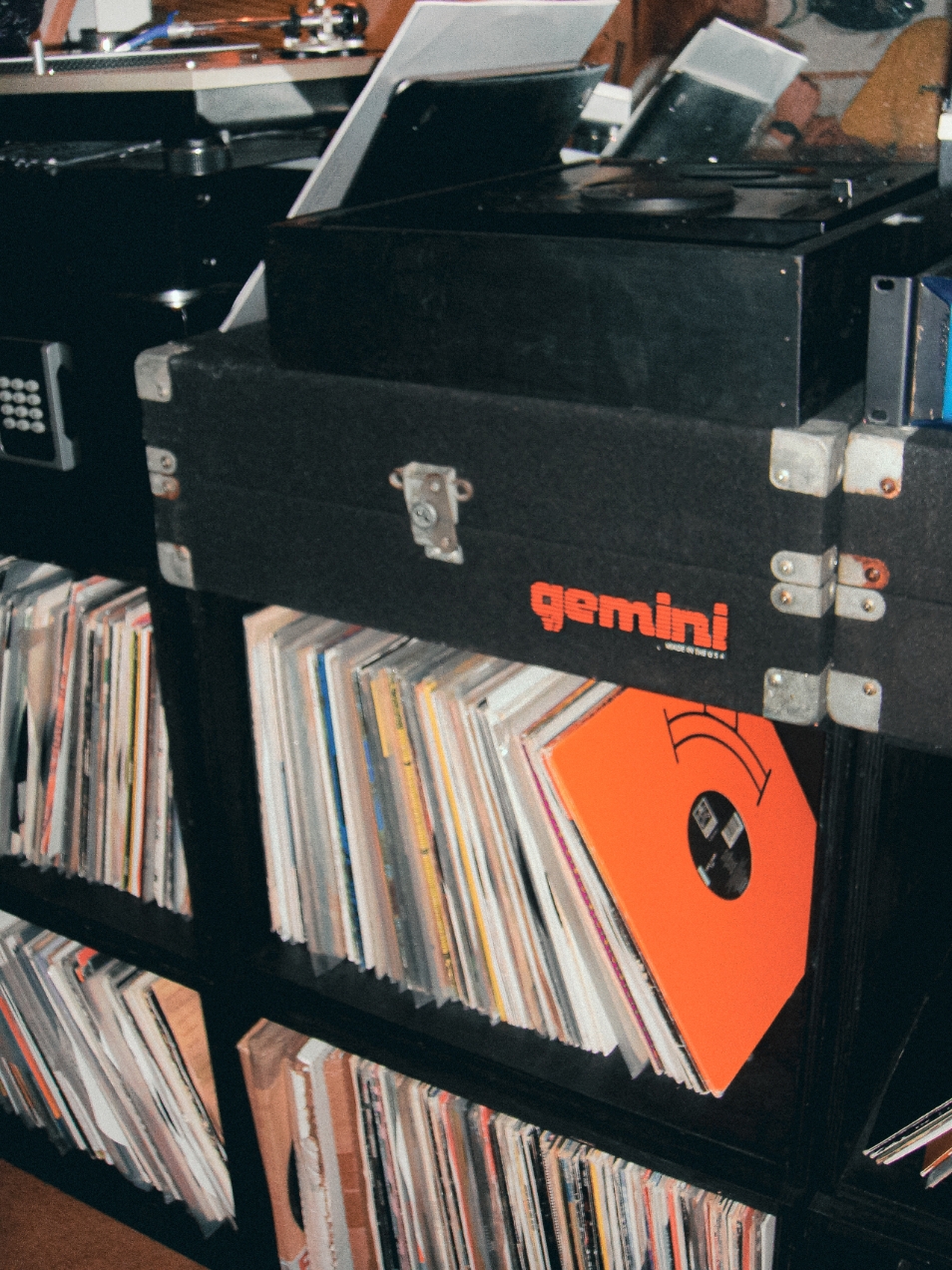
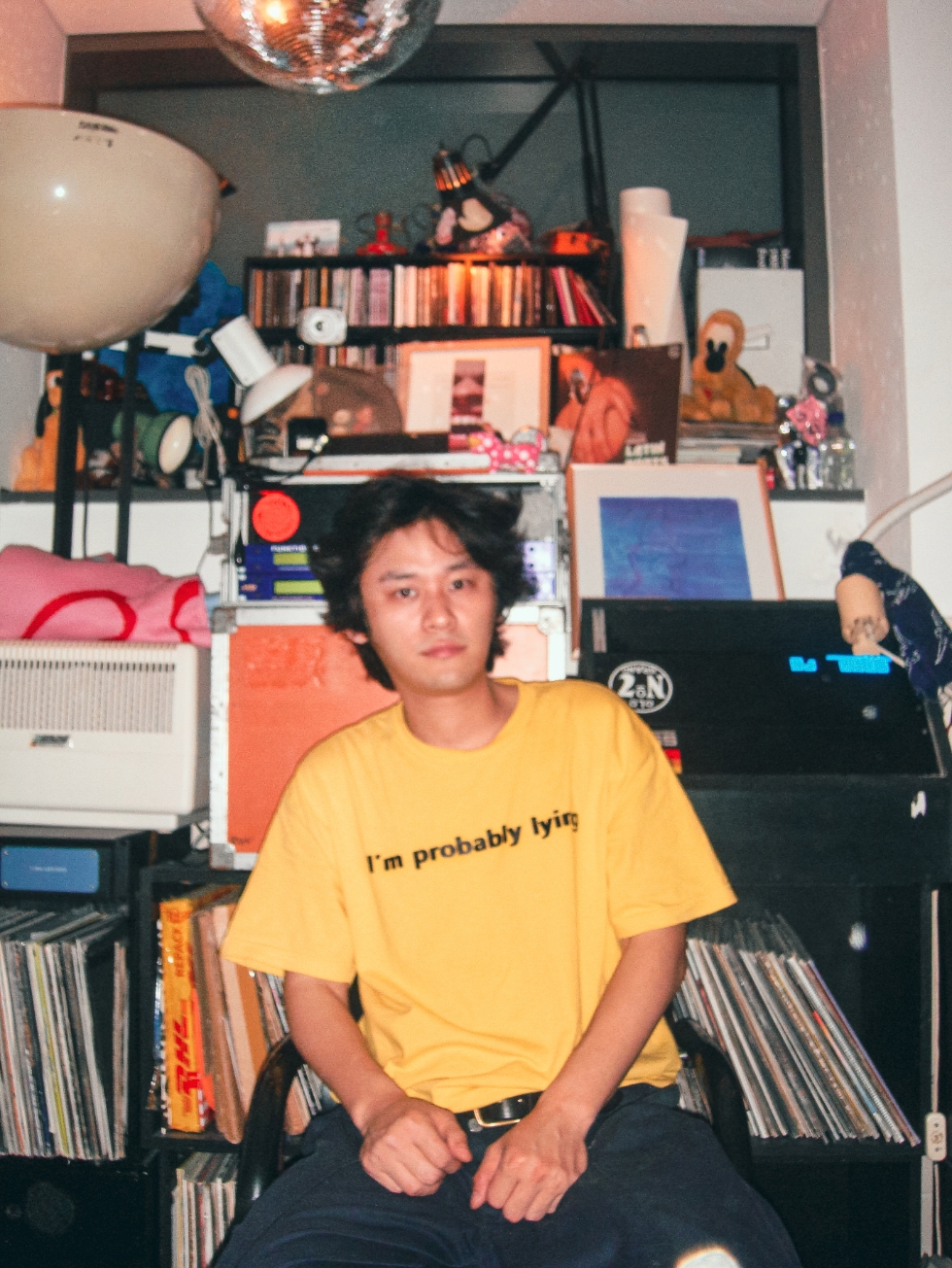
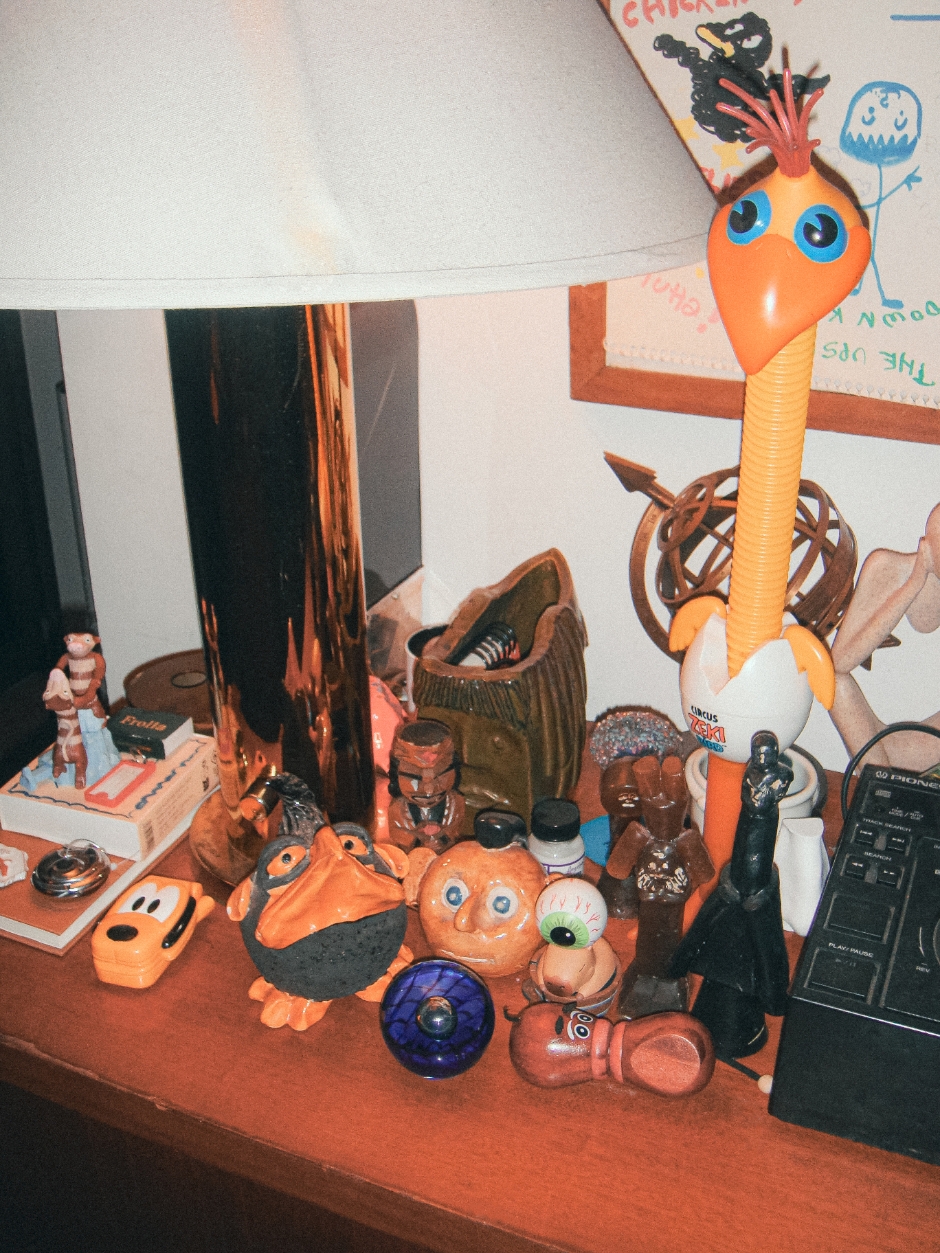
Are there any events in Asia you think are really pushing things forward musically? Any DJs you feel deserve more attention?
Crazy Rainbow Disco Club. Even after running a club myself for three years—and feeling like I was going bald from the exhaustion—the RDC team has been going strong for sixteen. It’s the closest thing I’ve found to an ideal paradise. Whether you’re an organiser, an artist, or a guest showing up with their kid, from every perspective, it’s a flawless festival.
And still, knowing they’ve been holding it down for so long—working hard, pushing through, holding back tears—it makes me feel like I could never do what they’ve done. There’s truly no other festival on the planet that balances style and scale so seamlessly, without a single misstep, like Rainbow Disco Club.
This time, Bali’s Gero and Dita stood out. We’ve been friends for a while, but something about seeing them now hits differently. I was genuinely happy to witness such strong guardians of disco in Asia. Most of all, it was exciting to feel how they’re carrying forward a groove that can be felt in Asia.
What direction do you see NYAPI, Studio Namsan, and your newest venture, Bar Piment, heading in the near future?
Namsan will, without a doubt, continue to create great artists, and true to our slogan, “Good music everywhere,” we will spread music to every corner of the world, using any means necessary.
Bar Piment is a bar I founded this year. Musically, it allows DJs to really find their true sound, and it’s more about nostalgia than revolution. The cocktails are seriously delicious. Looking ahead, Bar Piment aims to create a new kind of space in Seoul, while NYAPI will strive to speak of an impossible level of freedom.
Ironically, compared to NYAPI, where there are too many people close to me, Piment is a more secretive space for some.
Where do you see ffan's journey heading next?
I’ll just keep going. It’s time to make a few more choices, but all my time will still be dedicated to expressing myself through music.
One last question—if you had to choose one mentor or senior who’s had the biggest impact on your musical journey, who would it be?
Musically, without a doubt, it’s Chida.
Before I met him, I was just an overly confident kid who thought I had it all figured out. But when I saw him perform, he was already doing exactly what I wanted to do—only ten steps ahead. After that, I couldn’t fully grasp music for a few years. No matter what I tried, I felt like I was just chasing his shadow. Nothing I did felt better than what he’d already done.
As for life as an artist, it has to be Capablanca.
In Berlin, where everyone seemed to wear dark clothes and carry this tension around them, Hugo stood out—bright, colourful, always smiling, as if he didn’t care what anyone thought. Watching him take an interest in things was like watching someone light up with genuine curiosity. He always seemed to have something on his mind, and that energy seemed the coolest ever to me.
My friends and I often say Capablanca is a genius in all five senses. It’s not just about how he hears music—he has this unique ability to express whatever he feels, in his own language. And yet, I think most people don’t even realise that’s possible.
Back then, Hugo seemed like someone who could make any choice—fashion, art, music, whatever—with total freedom. Eventually, he wore mismatched socks and created a label with stamps of mushrooms and horses—something that can’t even be categorised by genre. To me, this was like the Fauvism in art, and I felt like he was using his time in life better than anyone else.
[Images via Yabakinoko]
Daniela Solano is a freelance writer for Mixmag Asia, follow her on Instagram here.
Cut through the noise—sign up for our weekly Scene Report or follow us on Instagram to get the latest from Asia and the Asian diaspora!


